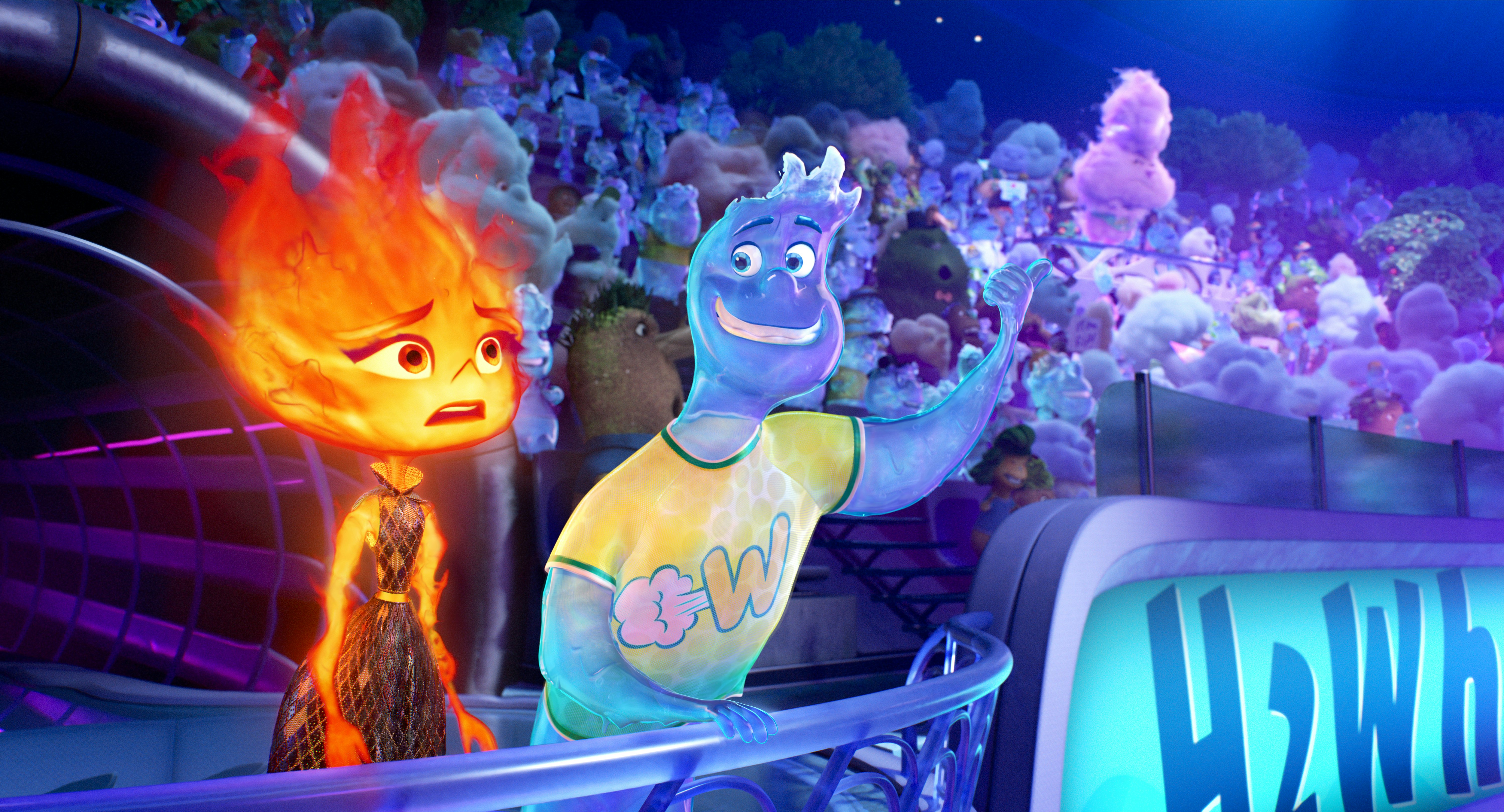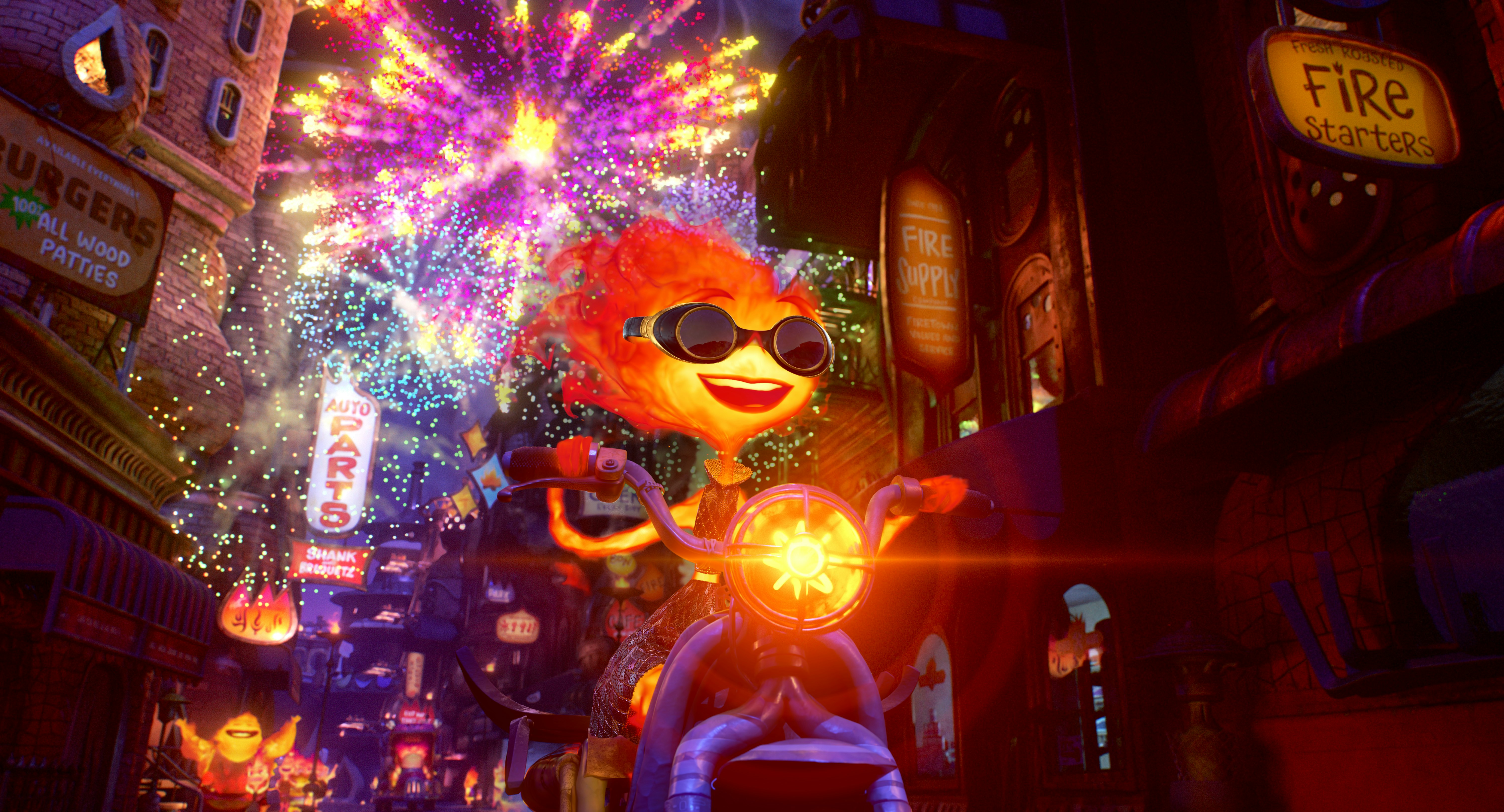
Pixar movies have long turned high-concept ideas into heartwarming family films. (What if toys were alive? What if our feelings had feelings?) But the trick to making those far-out ideas digestible to audiences of all ages is an age-old storytelling device: the villain.
Not all Pixar movies have villains, and indeed, some of the best ones don’t. But a really good bad guy has elevated most of the studio’s greatest films into the realms of all-time classics. Where would Toy Story’s narrative of ego and friendship be without a psycho like Sid? What would Monsters, Inc. be without the snide Randall Boggs? How could WALL-E tell its star-crossed robo-romance without the sinister AUTO? These villains don’t define the best Pixar movies, but they ramp up the stakes and drive the conflict so that bigger ideas (be it ennui or climate anxiety) can shine through.
But recently, Pixar has started to forego the villain altogether. In Onward, the bad guy was grief. In Soul, it was afterlife bureaucracy (and also disillusionment). In Turning Red, it was generational trauma. These movies weren’t terribly worse off for not having a villain, but it speaks to a trend that kneecaps Pixar’s latest film, Elemental.

Directed by Peter Sohn (The Good Dinosaur), Elemental is a lovely, if lightweight, film about the unlikely romance between a fire element and a water element. Ember Lumen (voiced by Leah Lewis) is the daughter of two fire elements who immigrated to Element City after their home country was ravaged by storms. Ember adores her father and dreams of taking over his store — if she can control her temper. But when an outburst causes irreparable damage to the shop, Ember must team up with Wade (Mamoudou Athie), an overly emotional water element and city inspector investigating the source of a mysterious leak throughout the city.
Another movie might make this central conflict more, well, central. Where did this leak spring from? Is there some vast conspiracy behind it? But Elemental isn’t interested in that, instead turning this conflict into a springboard for the romance between Ember and Wade. As they rush to find the source of the leak and stop water from reaching Fire Town, the two slowly fall in love — evidenced by the sweet montages of them going on dates, dancing, and doing cool elemental things. It’s genuinely heartwarming stuff lifted straight from the classic rom-coms that inspired this movie. And it allows Elemental to explore the big idea at the heart of its conceit: what if two people from wildly opposing cultures fell in love?
The culture clash between water and fire provides some of the most fun moments of the film — and some of its most beautiful and creative animated innovations — but after the latest “water and fire don’t mix!” hijink, Elemental starts to lose steam. Torn between doubling down on its immigrant story or delivering a big action-packed finale, the movie ends up trying to do both. But although the grand finale ramps up the stakes enough to make the romance finally bloom, Elemental’s big ideas and big heart don’t come together the way they should. Could adding a villain have fixed everything?

The issue with Elemental — and a few recent Pixar films — isn’t a lack of conflict, it’s that the conflict doesn’t feel urgent without an antagonistic force driving the plot forward. It’s a storytelling tenet: a hero needs an antagonist (or at least an obstacle) to overcome and move onto the next stage of their heroism. Without that, there’s no transformation. And in Elemental, it feels like not enough has changed.
Elemental is not without its bright spots — the animation of the flickering fire elements is beautifully organic and alive, while Element City itself is a sight to behold. And it’s honestly bold of Pixar to deliver a straightforward romance to an audience of kids who will loudly yell “yuck” at the sight of a kiss. But even as Elemental settles in the firmly middle of the tier of Pixar films, it feels like it could have been bumped up a few rungs, if only it had a really good bad guy.







